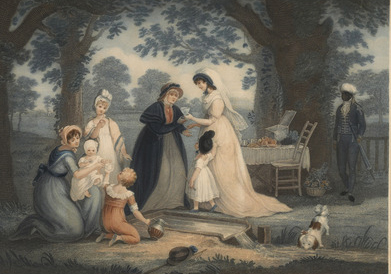 Spilsbury does not use picnic (if she even knew the word) to describe the luncheon because it was not yet in everyday use. However, The Drinking Well in Hyde Park (1802) reminds us that the park has long been a popular gathering place for socializing and leisure....
Spilsbury does not use picnic (if she even knew the word) to describe the luncheon because it was not yet in everyday use. However, The Drinking Well in Hyde Park (1802) reminds us that the park has long been a popular gathering place for socializing and leisure....
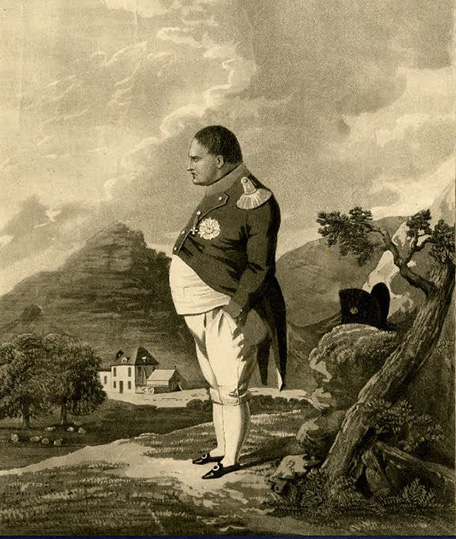 Five years into his six-year exile on St. Helena, Napoleon was pale, tired-looking, and fat, though his face showed no fatigue or illness. Still, after a ten-mile journey on horseback (on hilly terrain), he uncharacteristically stopped for a social visit at Mount...
Five years into his six-year exile on St. Helena, Napoleon was pale, tired-looking, and fat, though his face showed no fatigue or illness. Still, after a ten-mile journey on horseback (on hilly terrain), he uncharacteristically stopped for a social visit at Mount...
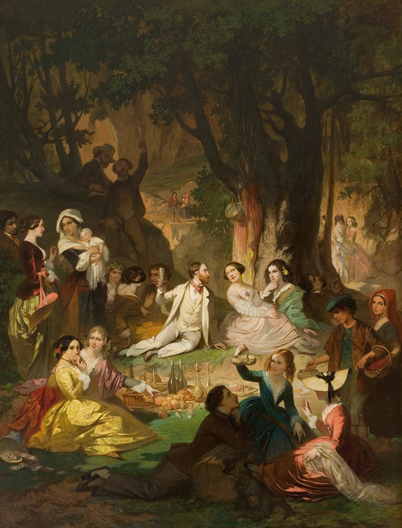 It’s unclear why Glaize selected a goûter champêtre or picnic for a portrait of his patron Alfred Bruyas. Perhaps Glaize meant to highlight Bruyas, dressed white, in a theatrical social setting as a man among many women. He spotlights his patron in the center,...
It’s unclear why Glaize selected a goûter champêtre or picnic for a portrait of his patron Alfred Bruyas. Perhaps Glaize meant to highlight Bruyas, dressed white, in a theatrical social setting as a man among many women. He spotlights his patron in the center,...
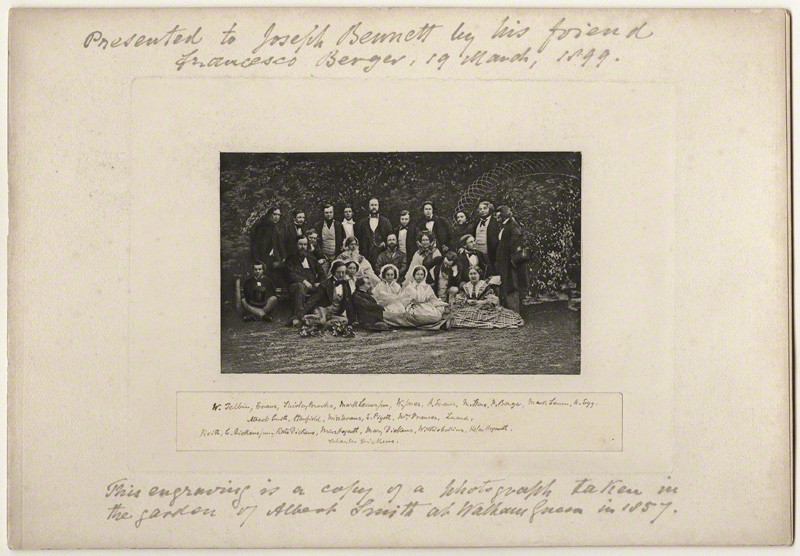 Frederic Ouvry’s invitation to a July garden party at his home in Fulham Green, London, insinuates that guests would gather with two celebrities: Albert Smith, the famous lecturer of “The Glaciers of Mont Blanc,” and Charles Dickens. The latter was...
Frederic Ouvry’s invitation to a July garden party at his home in Fulham Green, London, insinuates that guests would gather with two celebrities: Albert Smith, the famous lecturer of “The Glaciers of Mont Blanc,” and Charles Dickens. The latter was...
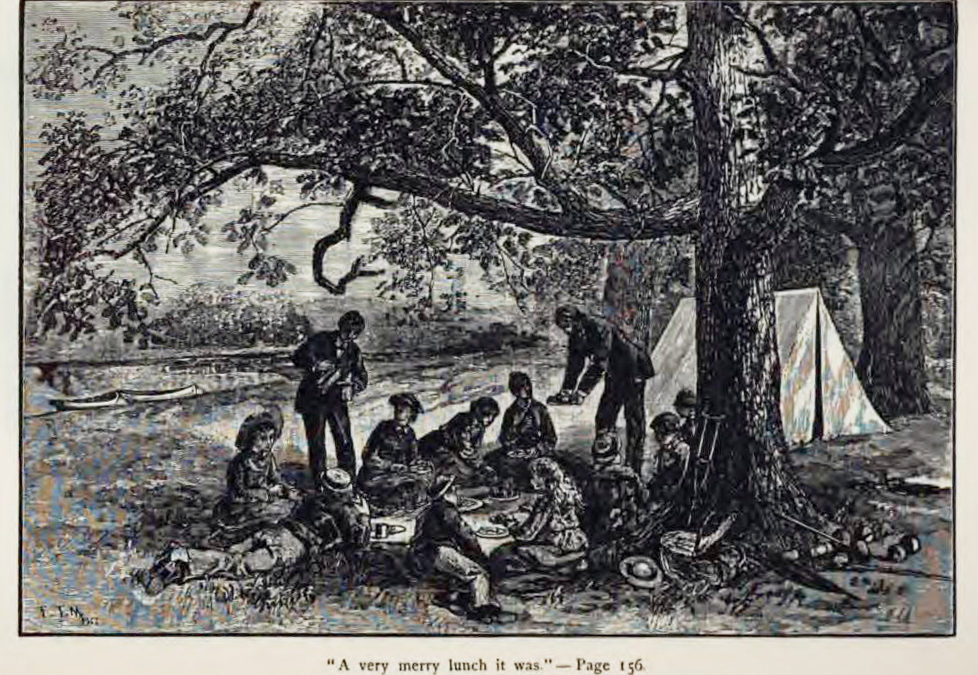 “Sunshine and laughter are good omens for a pleasure party,” Alcott writes in Little Women. And when Laurie writes to Jo to explain his intentions, he promises sunshine and laughter. Dear Jo, What ho! Some English girls and boys are coming to see me...
“Sunshine and laughter are good omens for a pleasure party,” Alcott writes in Little Women. And when Laurie writes to Jo to explain his intentions, he promises sunshine and laughter. Dear Jo, What ho! Some English girls and boys are coming to see me...
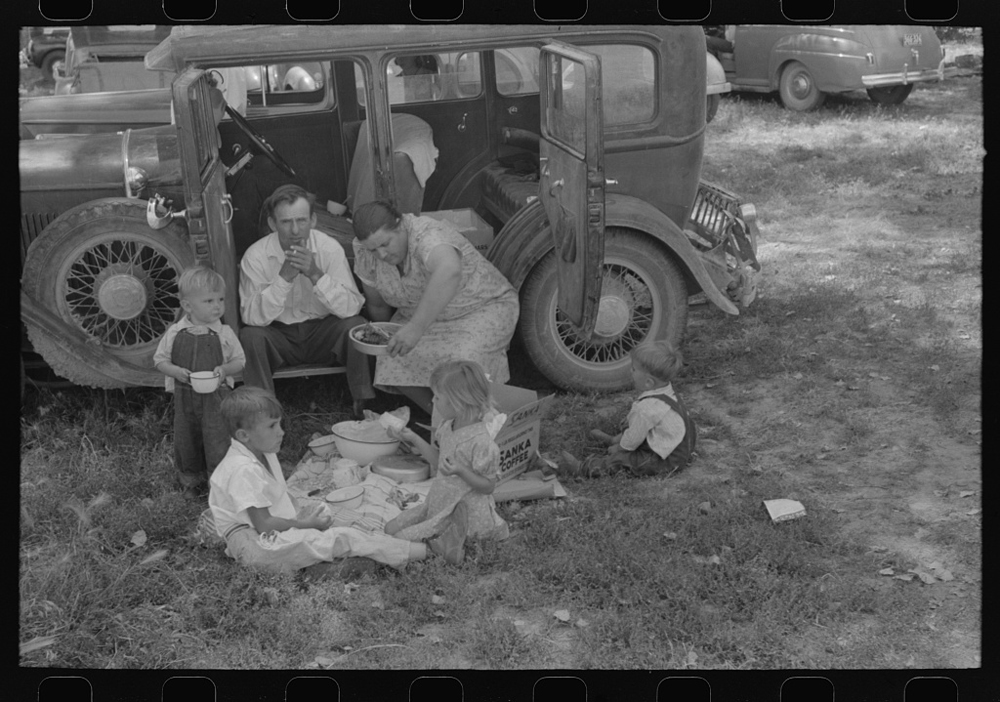 Lee’s A Family Picnic on the Fourth of July at Vale, Oregon (1941) is a photographic document of a family picnicking on the running board of their Ford. The doors are open, and Mom and Dad sit on the running boards. Children sit on the ground beside a picnic cloth....
Lee’s A Family Picnic on the Fourth of July at Vale, Oregon (1941) is a photographic document of a family picnicking on the running board of their Ford. The doors are open, and Mom and Dad sit on the running boards. Children sit on the ground beside a picnic cloth....
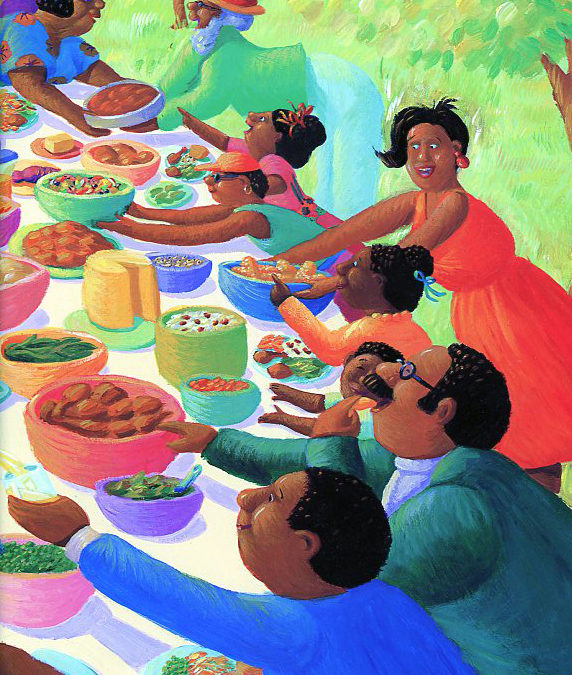 Woodson’s We Had a Picnic This Sunday Past (1997) is a joyous family gathering with mounds to eat. It’s a story about an African American family reunion picnic in an urban park. The narrator, a young girl, comes with her Grandma, who has worked frying...
Woodson’s We Had a Picnic This Sunday Past (1997) is a joyous family gathering with mounds to eat. It’s a story about an African American family reunion picnic in an urban park. The narrator, a young girl, comes with her Grandma, who has worked frying...








